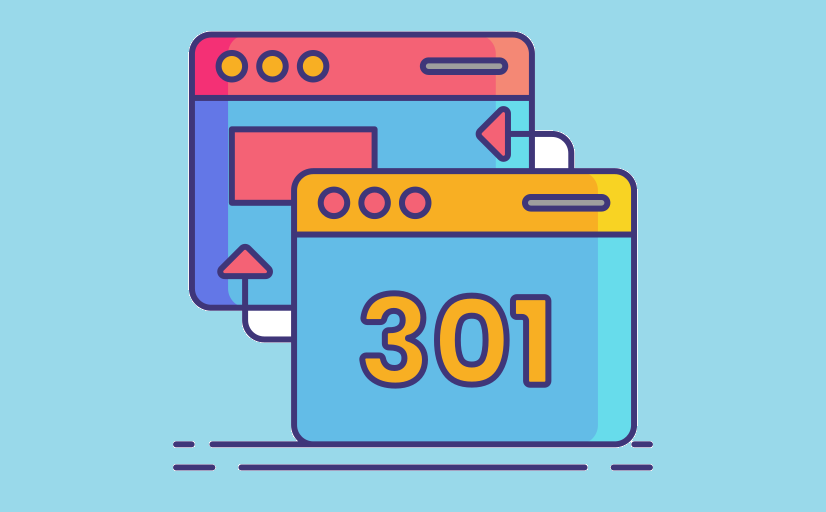In the ever-evolving landscape of digital marketing and SEO, one challenge that website owners and SEO professionals often face is managing duplicate content. Duplicate content can harm your website’s search engine rankings and user experience. To address this issue, two common strategies are often employed: Canonical Tags and 301 Redirects. In this blog, we will explore the differences, use cases, and benefits of these two methods to help you make informed decisions about managing duplicate content on your website.
Duplicate Content: The SEO Dilemma
Duplicate content refers to identical or very similar content that appears on multiple web pages within a website or across different websites. Search engines like Google strive to provide the most relevant and unique content to their users. When they encounter duplicate content, it can lead to confusion, making it difficult for search engines to determine which version to index and rank. As a result, your website’s SEO performance can suffer.
To combat this issue, digital marketers and SEO experts have developed various strategies. Among them, Canonical Tags and 301 Redirects stand out as effective tools for managing duplicate content.
Canonical Tags
Canonical Tags are HTML meta tags that inform search engines about the preferred version of a page when multiple pages contain similar or identical content. The canonical tag is placed in the head section of a webpage and indicates the canonical URL, which is the page that should be considered the primary source for that content.
When to Use Canonical Tags:
- Different URLs for the same content: If your website has multiple URLs that display the same content, you can use a canonical tag to specify the preferred URL. This is especially useful for e-commerce websites where products may appear under different categories or filters.
- Pagination: If your content is divided across multiple pages, like in a blog or an article, you can use canonical tags to consolidate them into a single preferred page.
- Syndicated Content: If your content is syndicated on other websites, using a canonical tag can ensure that the original source gets proper credit.
Benefits of Canonical Tags:
- Preserves Link Equity: Canonical tags consolidate the SEO value (link equity) of multiple URLs, ensuring that the preferred URL receives the accumulated SEO benefits.
- User Experience: Canonical tags can help streamline user navigation by ensuring that visitors always land on the preferred version of the content.
- Reduced Crawl Budget: Search engines allocate crawl budgets to websites, and duplicate content can consume valuable resources. Canonical tags help save your crawl budget by directing crawlers to the primary page.
- Avoids Duplicate Content Penalties: Using canonical tags helps prevent your website from being penalized for duplicate content, which can negatively impact your rankings.
301 Redirects
A 301 Redirect is a server-side command that tells search engines that a webpage has permanently moved to a new location. When a user or search engine bot attempts to access the old URL, they are automatically redirected to the new one. This method is highly effective for managing duplicate content by consolidating the SEO value of multiple pages into one.
When to Use 301 Redirects:
- Content Removal: If you have decided to remove a webpage or change its URL, setting up a 301 redirect ensures that users and search engines are directed to the new location.
- URL Consolidation: If your website has multiple URLs that contain duplicate content, a 301 redirect can be used to redirect all these URLs to the preferred version.
- Website Restructuring: During a website overhaul, when you change the structure of your website and URL paths, 301 redirects help maintain the SEO value of old URLs.
Benefits of 301 Redirects:
- SEO Preservation: 301 redirects allow you to transfer the SEO value of the old page to the new one. This means that any backlinks, rankings, and traffic associated with the old URL are retained.
- Improved User Experience: Users are seamlessly redirected to the correct page, reducing the chances of encountering error messages or outdated content.
- Quick Implementation: Setting up 301 redirects is a straightforward process for web developers, making it a quick solution to manage duplicate content.
- Avoids Duplicate Content Penalties: Like canonical tags, 301 redirects prevent search engines from considering duplicate content, thus avoiding penalties.
Choosing Between Canonical Tags and 301 Redirects
The choice between using canonical tags and 301 redirects depends on your specific circumstances and goals. Here are some factors to consider:
- Content Duplication Level: If you have only minor content variations or slight differences, canonical tags may be sufficient. However, for more substantial changes or when consolidating multiple pages, 301 redirects are a better choice.
- SEO Preservation: If preserving SEO value is crucial, 301 redirects are the better option, as they transfer both ranking and link equity to the new URL.
- Temporary vs. Permanent Changes: If you plan to make temporary changes, canonical tags may be more appropriate. For permanent changes, 301 redirects are the way to go.
- Technical Considerations: Evaluate your technical capabilities and resources when deciding between the two methods. Canonical tags are easier to implement for some, while 301 redirects may be the preferred choice for others.
Conclusion
In the realm of digital marketing and SEO, the continuous struggle against duplicate content persists. Canonical tags and 301 redirects serve as powerful tools in this ongoing battle, each possessing its distinct advantages. By grasping the distinctions and applications of these methods, website owners and SEO professionals working with an SEO company can arrive at informed decisions to safeguard their website’s rankings and enhance the user experience. Whether you opt for canonical tags or 301 redirects, the ultimate objective remains consistent: guaranteeing that your website’s content is distinctive, pertinent, and optimized for search engines.






 +91 9718184875
+91 9718184875 info@ethicalseosolutions.com
info@ethicalseosolutions.com


